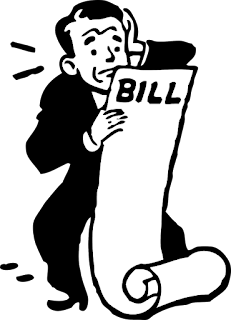Interested in Interest?

I help people with unsecured debt get lower interest rates, pay their debt off faster and save money. Do you know what the most important phrase in that sentence is? Lower Interest Rates. In my opinion, that is the key to getting control of your unsecured debt. Anyone who has ever had a credit card or line of credit knows the frustration of making payments then when the bill comes due again, seeing very little of the balance reduced. It is so aggravating! People feel like they will never get out of debt. But you can. To prove my point on how you can save money by reducing interest, I want to tell you a story. At one time, I had three Mastercards - BMO, Canadian Tire and President's Choice. The Canadian Tire card had an interest rate of 19.99% and the President's Choice, 19.97%. I took the amount that was owing on the Canadian Tire card from my line of credit at 10.5% interest and paid off the Canadian Tire card. When I phoned to cancel that card, the supe...





